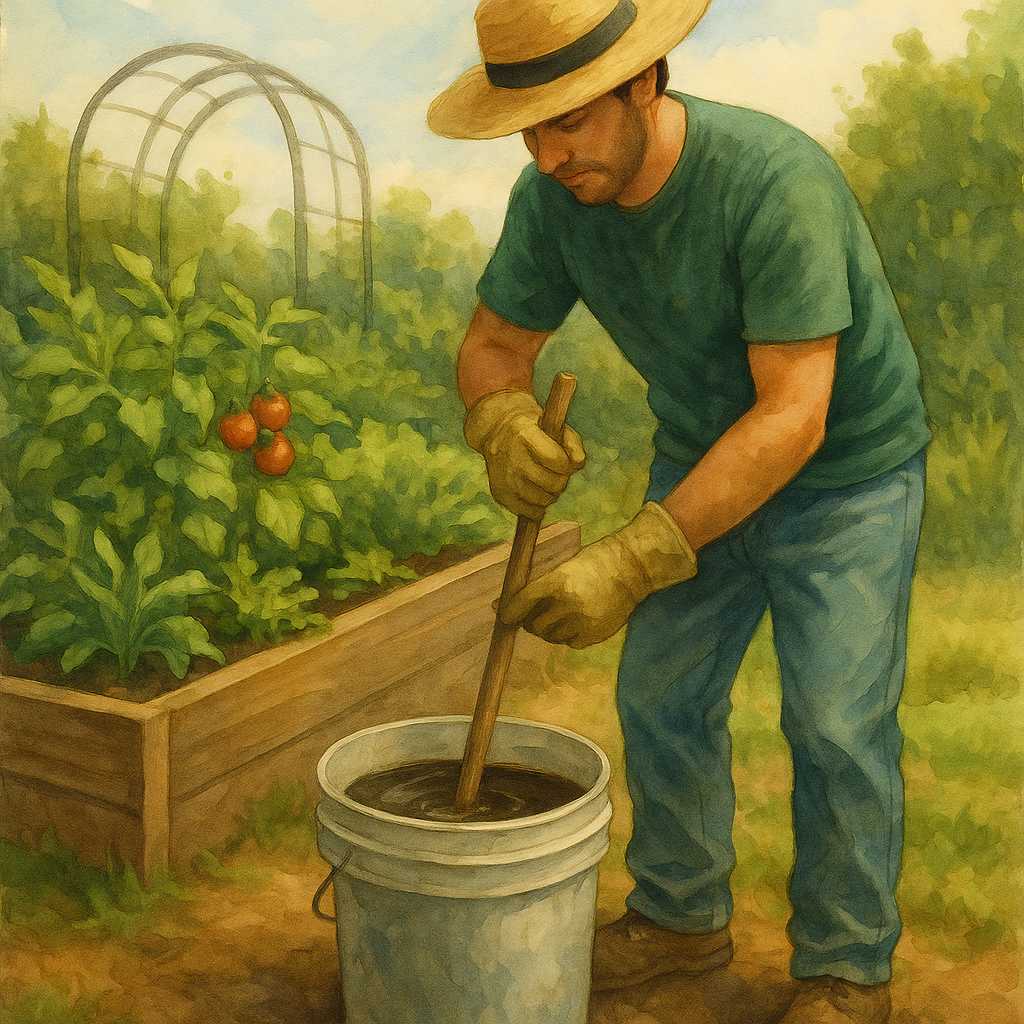If your Florida garden needs a quick nutrient boost, compost tea might be the magic potion you’re looking for. Unlike traditional compost that slowly enriches soil, compost tea works like a liquid multivitamin, delivering a burst of nutrients and beneficial microbes straight to your plants.
But did you know that gardeners around the world have been making their own versions of compost tea for centuries? Let’s dive into its fascinating history, global variations, and how you can brew a Florida-friendly version right at home.
What is Compost Tea?
At its simplest, compost tea is water infused with compost to extract beneficial microorganisms, humic acids, and nutrients. When poured around your plants or sprayed on their leaves, it:
Boosts soil health by introducing good bacteria and fungi.
Strengthens plants against pests and disease.
Provides a quick, easily absorbed nutrient boost—especially important in Florida’s sandy soil, which leaches nutrients quickly.
Think of it as giving your plants a probiotic-rich smoothie.
A Brief History of Compost Tea
Ancient China & Korea: Farmers steeped animal manure, compost, and fermented plants in water to make what they called “liquid manures.” This practice evolved into Korean Natural Farming’s famous fermented plant juice (FPJ) and fish amino acid (FAA)—both compost tea cousins.
Europe (Middle Ages): Gardeners soaked nettles, comfrey, and manure in barrels of rainwater for weeks to make a dark, nutrient-rich liquid known as manure tea or liquid feed.
Modern Organic Farming: Compost tea gained popularity in the 1990s, especially in the U.S., where organic farmers began using aerated compost tea (ACT) to encourage beneficial microbes.
Global Variations of Compost Tea
-
Korean Natural Farming (KNF): Uses fermented plant juices, brown sugar, and rice wash water to encourage beneficial microbes.
-
Japanese Bokashi Liquid: A byproduct of fermenting kitchen scraps with bran, used as a mild compost tea.
-
European Herbal Teas: Stinging nettle or comfrey steeped for weeks to provide nitrogen and potassium for vegetables.
-
Indigenous Practices: Many Indigenous peoples across the Americas steeped fish scraps or seaweed as natural liquid fertilizer—something Florida’s coastal gardeners can relate to!
Florida-Friendly Compost Tea Recipe
Florida gardens have unique challenges: sandy soil, high heat, and heavy rains that wash away nutrients. This recipe is designed to help your plants thrive in these conditions.
You’ll Need:
-
1 five-gallon bucket
-
2–3 cups of finished compost or worm castings (worm castings are excellent for Florida’s sandy soil)
-
1 tablespoon unsulfured molasses (feeds beneficial microbes)
-
1 handful of seaweed or kelp meal (optional, for extra minerals—very Florida-friendly!)
-
Non-chlorinated water (rainwater or let tap water sit for 24 hours)
-
Aquarium air pump and air stone (optional but highly recommended for aeration)
How to Brew:
-
Fill the Bucket: Add 4 gallons of dechlorinated water.
-
Bag the Compost: Place compost or worm castings in a mesh bag or old pillowcase, and submerge in the bucket.
-
Add Molasses & Seaweed: Stir well to dissolve.
-
Aerate (Optional but Ideal): If using an aquarium pump, let it run to keep the tea oxygenated and microbes alive.
-
Brew:
-
Aerated Tea: Brew 24–36 hours.
-
Non-Aerated Tea: Steep 3–5 days, stirring daily.
-
How to Use:
Soil Drench: Pour around plant roots every 2–3 weeks.
Foliar Spray: Strain and spray leaves early in the morning for pest and disease protection.
Pro Tips for Florida Gardeners
Apply Before Rain: Florida’s heavy rains can wash away nutrients; use compost tea right before a dry stretch.
Shade Your Brew: Keep your bucket in a shady spot; Florida sun can overheat and kill microbes.
Use Quickly: Compost tea is most potent within 4–6 hours after brewing (especially aerated tea).
Why Compost Tea is Perfect for Florida
Florida’s sandy soils often lack organic matter, and constant watering or rain can leach nutrients quickly. Compost tea replenishes nutrients fast, improves soil structure over time, and strengthens plants against heat stress, making it an ideal addition to your garden care routine.
So grab a bucket, brew a batch, and let your Florida garden sip on this liquid gold!

